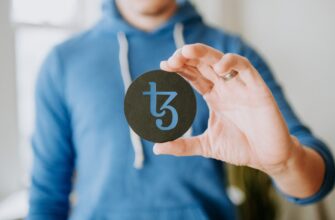- Crypto HNS Explained: Your Complete Guide to Handshake Decentralized Domains
- What is Handshake (HNS)?
- How Handshake Technology Works
- Top Benefits of Using HNS Domains
- Practical Applications of Crypto HNS
- How to Acquire and Use HNS Tokens
- Handshake vs Traditional DNS: Key Differences
- Frequently Asked Questions (FAQ)
- Is Handshake replacing the current DNS system?
- How much does a Handshake domain cost?
- Can I transfer my existing .com domain to Handshake?
- What happens if I lose my private keys?
- Is Handshake environmentally friendly?
Crypto HNS Explained: Your Complete Guide to Handshake Decentralized Domains
Handshake (HNS) represents a revolutionary approach to internet infrastructure by decentralizing domain name ownership. As a peer-to-peer blockchain protocol, it challenges traditional DNS systems controlled by centralized authorities like ICANN. This comprehensive guide explores how crypto HNS is reshaping digital sovereignty and why it matters for the future of the web.
What is Handshake (HNS)?
Handshake is a decentralized, open-source protocol that enables permissionless domain name registration and resolution. Unlike conventional domains (.com, .org), Handshake domains (known as Top-Level Domains or TLDs) are:
- Stored on a blockchain rather than centralized servers
- Purchased via cryptocurrency (HNS tokens)
- Controlled entirely by private keys, not corporations
- Resistant to censorship and takedowns
The native cryptocurrency HNS serves as both the network’s fuel and governance token, enabling domain auctions and transaction validation.
How Handshake Technology Works
Handshake’s architecture combines blockchain innovation with DNS compatibility:
- Decentralized Naming System: Replaces root zone file management with blockchain consensus
- Auction Mechanism: Users bid on TLDs (e.g., .blog) in transparent Vickrey auctions
- Hybrid Resolution: Integrates with existing DNS through resolvers like hsd or Fingertip
- Proof-of-Work: Uses a custom mining algorithm (Blake2b + SHA3) for security
This system allows anyone to register previously unavailable TLDs without intermediaries.
Top Benefits of Using HNS Domains
- Censorship Resistance: Governments cannot seize or block domains
- Reduced Costs: Eliminates recurring renewal fees after initial purchase
- Enhanced Security: Cryptographic ownership prevents domain hijacking
- Namespace Innovation: Enables custom TLDs like .yourname or .community
- Decentralized Web Integration: Works seamlessly with IPFS and other Web3 protocols
Practical Applications of Crypto HNS
Beyond traditional websites, HNS enables:
- Decentralized websites hosted on IPFS or Skynet
- Blockchain-based identity systems
- Uncensorable blogs/news platforms
- Brand-protected TLDs (e.g., .nike)
- Simplified cryptocurrency addresses (send BTC to yourname/ instead of complex strings)
How to Acquire and Use HNS Tokens
Follow these steps to participate:
- Buy HNS: Purchase on exchanges like Gate.io or Namebase
- Set Up Wallet: Use official hsd node or Bob Wallet
- Bid on Domains: Participate in Handshake auctions via Namebase or direct CLI
- Configure DNS: Point domains to decentralized hosts using Handshake resolvers
Note: Domain ownership requires locking HNS as collateral until release.
Handshake vs Traditional DNS: Key Differences
| Feature | Handshake | Traditional DNS |
|---|---|---|
| Control | User-owned via keys | Registry-controlled |
| Cost Structure | One-time auction bid | Annual renewal fees |
| Censorship | Impossible | Enforceable |
| TLD Availability | Unlimited custom options | Restricted to ICANN approvals |
Frequently Asked Questions (FAQ)
Is Handshake replacing the current DNS system?
Not replacing, but complementing. Handshake operates alongside traditional DNS, providing an alternative root system for those seeking decentralization while maintaining compatibility.
How much does a Handshake domain cost?
Costs vary based on auction demand. Popular TLDs can cost thousands of HNS, while niche names may go for minimum bids (~0.01 HNS). No recurring fees apply after winning the auction.
Can I transfer my existing .com domain to Handshake?
No. Handshake manages only top-level domains (the part after the dot). You can point second-level domains (yourname.hns) to existing websites via DNS records.
What happens if I lose my private keys?
Like other cryptocurrencies, losing keys means permanent loss of domain control. Always back up keys securely using hardware wallets or encrypted storage.
Is Handshake environmentally friendly?
Handshake’s energy consumption is significantly lower than Bitcoin (estimated at 0.1% of BTC’s footprint). Its ASIC-resistant algorithm promotes decentralized mining.
Handshake represents a fundamental shift toward user-owned internet infrastructure. By combining blockchain security with DNS functionality, crypto HNS empowers individuals and organizations to reclaim digital sovereignty. As Web3 adoption grows, Handshake domains may become the gold standard for censorship-resistant online presence.








